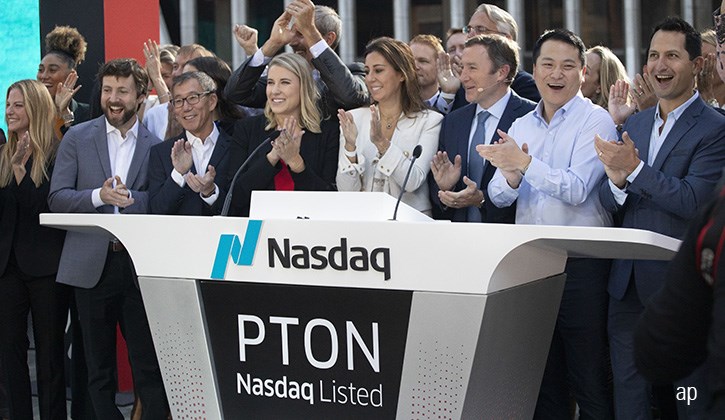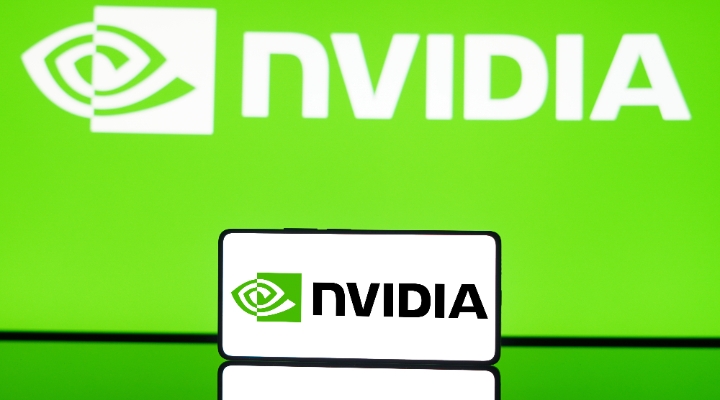
With stock markets continuing their recovery from the March sell-off and many economies starting to re-open, companies that had put their plans to go public on ice are starting to think about joining the market.
Last week, Warner Music Group (WMO) floated on the US stock market, raising nearly $2 billion from investors, and shares are now 20% higher than than the float price. Others firms are likely to follow this year as investors try to put March's volatility behind them. But how do investors make sure they pick a Peloton (PTON) (up 72% since IPO) and avoid an Uber (UBER), where shares are still 20% below their flotation price of $45.
Initial public offerings (IPOs) are a way of private companies offering new shares to the retail and professional investors. Having originally been set up by a small number of individuals (Facebook, Google, Amazon for example) these firms become public entities whose shares can be then be traded on the stock market. In recent years, share prices of some firms listing have skyrocketed on the day of the IPO, attracting the attention of private investors wanting to get in on the action.
Here, we look at some companies that could come to market in the US or UK this year:
Warner Music
Warner Music’s IPO was scheduled before the March volatility but finally went live on June 3, offering 77 million shares at $25 per share – the shares are now around $30. “We concluded that there was sufficient market momentum. Without ever trying to time the market this looked like a good time to go,” said Warner chief executive Stephen Cooper.
The company – which has artists such as Ed Sheeran, Dua Lipa and Bruno Mars on its books – has benefited from the wider trend of music streaming, which has seen a spike in lockdown.
Rival outfit Universal Music Group is also slated to go public this year and according to Pitchbook data, the company is valued at around $33 billion.
Airbnb
One of the most anticipated floats of 2019 was travel industry disruptor Airbnb. Recent events have put the industry into a deep freeze, but people are starting to book accommodation again and short-haul airlines such as easyJet and Ryanair are planning to restart flights.
While a return to full normality in the travel sector is unlikely, industry experts are predicting some semblence of a rebound as once-housebound tourists look to book summer holidays - however, staycations look to be a likely trend as many would-be tourists will be keen to avoid air travel.
Airbnb said recently it expects to float this year. Broker IG expects it to be valued around $38 billion if it does list on the stock market .
Deliveroo
Lockdown has seen a surge in demand for food delivery services and there are plenty for hungry customers to choose from, including FTSE 100-listed Just Eat Takeaway (JET). Jack Neele, manager of the Silver-rated Robeco Global Consumer Trends fund, which holds Just Eat, thinks many first-time customers of these companies will come back for more even when lockdown lifts.
Just Eat's shares are up around 19% year to date, and that upward trajectory may well encourage some of its rivals to step in to the stock market.
London-headquarter Deliveroo, for example, recently received an investment from Amazon (AMZN) after a potential tie-up with Uber – which has its own food service, Uber Eats – fell through.
Pitchbook data shows that “foodtech” companies brought in $5.3 billion in venture capital in Q1 2020, a 23% increase on the year, but its analysts say the uncertain economic environment makes valuations hard to pin down.
Asda
As some of the only retailers to remain open in the last few months, supermarkets have come into their own during the pandemic. The industry is still fiercely competitive following the entrance of discounters Aldi and Lidl in recent years and existing players are looking to new ventures to maintain their market share. Marks & Spencer (MKS) has combined with Ocado (OCDO) for online deliveries, while Sainsbury’s bought Argos to improve its click and collect retail offering. Sainsbury’s was due to merge with Asda last year and take on the might of Tesco but regulators scuppered the deal, saying it would put prices up for customers.
Asda owner, the US retail giant Walmart, was thinking of spinning out the UK supermarket last year but the coronavirus crisis intervened. Could it now happen this year? “The listing would give Asda the opportunity to pursue its own strategy while retaining access to Walmart’s buying power,” says IG.
Other Ones to Watch
One of the biggest US IPOs slated for this year is data mining and artificial intelligence firm Palantir, which was set up by PayPal founder Peter Thiel. With an estimated $40 billion valuation, the size of this float could dwarf Airbnb.
UK telecoms firm O2 could also be another contender as it seeks to recoup the cost of bidding for 5G auctions. Other potential UK floats this year include Range Rover-maker Jaguar Land Rover and supercar-maker McClaren. The car industry is facing challenges in the current economic climate however, not to mention concerns over a no-deal Brexit and the chastening experience of Aston Martin Lagonda (AML) as a public company – it listed at £19 last year and shares are now trading at 71p, a fall of 96%.
No More Irrational Exuberance?
London Stock Exchange data for main market listings shows there were 23 IPOs in 2019 while, halfway through this year, there have so far been just six. It could be that the Covid-19 crisis puts many companies off from listing until the outlook is more certain, or there could be a rush of listings in the second half of the year to make up for lost time.
Either way, IG’s chief market analyst, Chris Beauchamp, expects investors to be more discerning after the Covid-19 crash, and for companies to be more conservative about pricing than before. “People have to be more realistic in their expectations, which is a good thing all round for the functioning of the market, for investors and for management,” he says.
He argues that for new investors, it's less about trying to pick up companies that are likely to surge in the few days after launch, it's more about picking about quality companies with strong balance sheets.





























